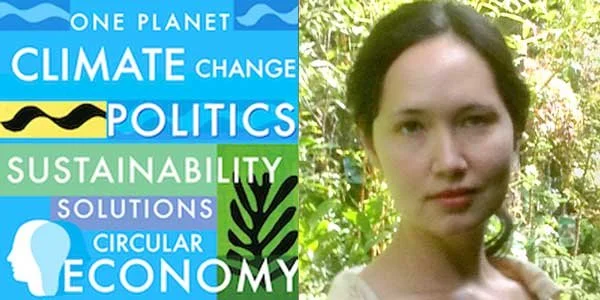Wetlands, Methane & Restoring Earth’s Garden of Eden with EUAN NISBET
Manage episode 437118201 series 3334565
Have we entered what Earth scientists call a “termination event,” and what can we do to avoid the worst outcomes? How can a spiritual connection to nature guide us toward better environmental stewardship? What can ancient wisdom teach us about living harmoniously with the Earth? How have wetlands become both crucial carbon sinks and colossal methane emitters in a warming world?
Euan Nisbet is an Emeritus Professor of Earth Sciences at the Royal Holloway University of London. Specializing in methane and its impact on climate change, his research spans Arctic and Tropical Atmospheric Methane budgets. Nisbet led the MOYA project, focusing on global methane emissions using aircraft and ground-based field campaigns in Africa and South America. Born in Germany and raised in Africa, his field work has taken him around the world. He is the author of The Young Earth and Leaving Eden: To Protect and Manage the Earth.
Audio Block Double-click here to upload or link to a .mp3. Learn moreI am a Christian and I have strong Muslim and Jewish friends as well as great respect for Hindu beliefs. I grew up in Southern Africa and I am well aware of the depth of some Indigenous beliefs. I think that having belief systems does give you a very different perspective sometimes. Now, in Christianity, the concept of the shepherd, human beings are here and this is our garden, our garden of Eden, but we have a responsibility. And if we choose to kick ourselves out of the garden, there are consequences. And that's precisely what we are doing. The garden is there, it's lovely, and we can manage it, and it's our job to manage it. We can manage it properly. We can respect it. It's for all creation, and it's very explicit that it involves all Creation. And that's a very fundamental biblical law that you have to respect all Creation. And if you don't do that, then the consequences—you’re basically throwing yourself out of the Garden of Eden.

Papyrus swamp, Kajjansi, Uganda (Copy) (Copy)
Equatorial swamps are major methane emitters

Canadian wetland, near Fraserdale, Ontario (Copy) (Copy)
Boreal wetlands like this, often made or enhanced by beaver dams, are very extensive and emit much methane in summer

The methane kill zone, in the moist tropical mid-troposphere, where the main sink, OH, destroys methane. (Copy) (Copy)
Photo Credit: Euan Nisbet
Associate Interview Producer and Associate Text Editor for this episode was Sophie Garnier. One Planet Podcast is produced by Mia Funk. Additional production support by Katie Foster.
Mia Funk is an artist, interviewer and founder of The Creative Process & One Planet Podcast (Conversations about Climate Change & Environmental Solutions).
Listen on Apple, Spotify, or wherever you get your podcasts.

20 episodios




